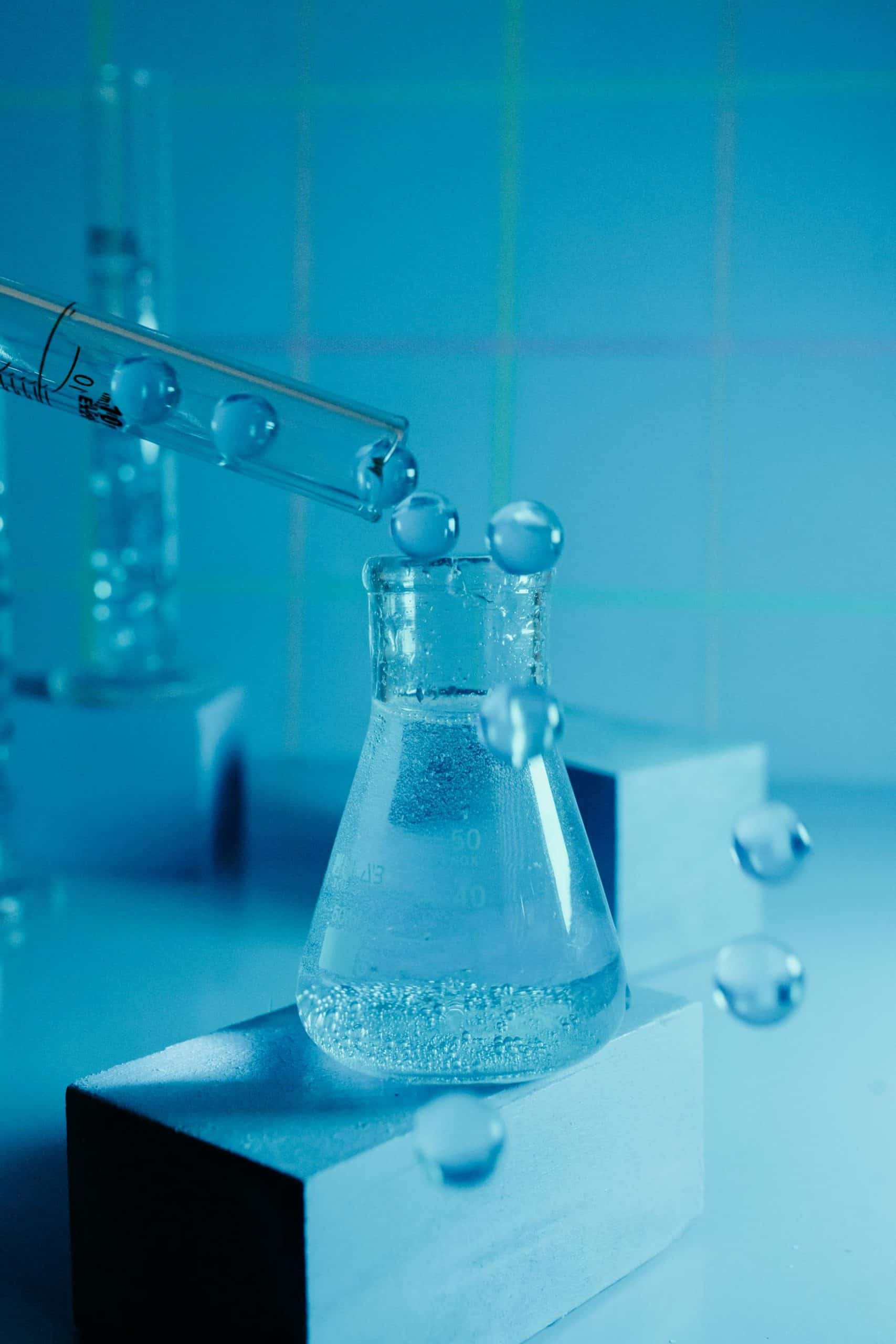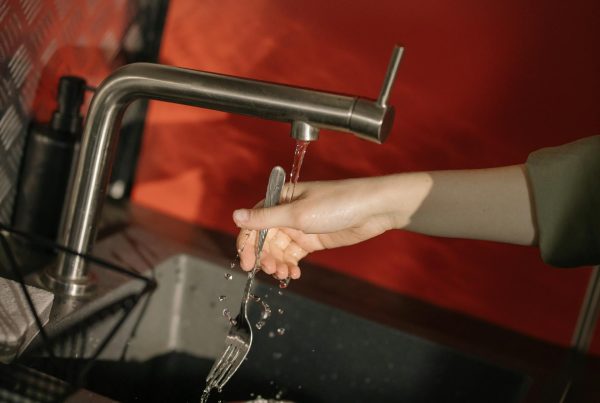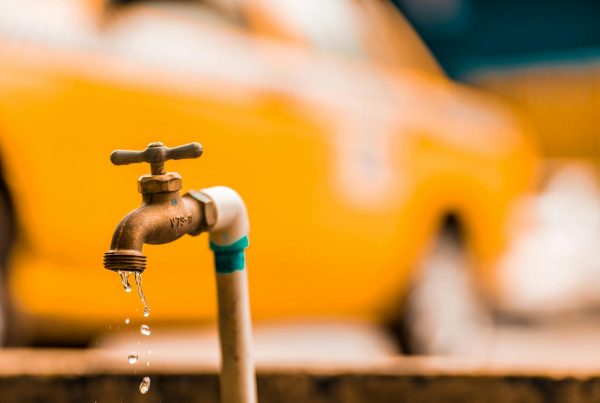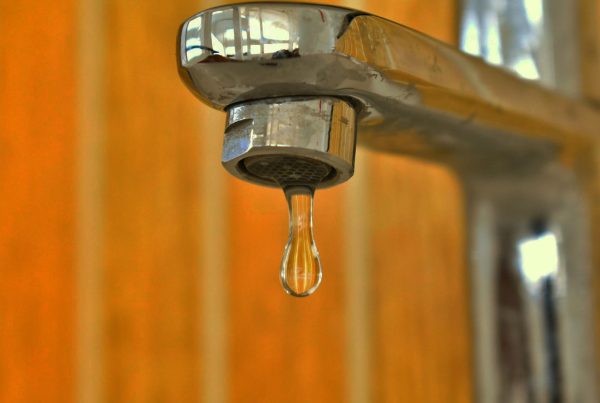Living in Las Vegas means dealing with hard water, much harder than most other cities in America. Spotty dishes, chalky residue on faucets, or a lack of suds are all common signs in Las Vegas.
If you live in Las Vegas and want to know how to test for hard water in your home, you’ve come to the right place. We’ll walk you through some simple ways to check your water’s hardness level.
But before we dive into testing methods, let’s cover some basics.
What Is Water Hardness?
Water hardness is simply the amount of minerals, mainly calcium and magnesium, that are dissolved in your water. When rain falls and moves through rocks and soil, it picks up these minerals naturally. The harder your water is, the more minerals it contains.
How Hard Is Las Vegas Drinking Water?
According to the LVVWD, Las Vegas’s water hardness is 304 parts per million or 18 grains per gallon, meaning it is “very hard.”
You can learn more about this on the LVVWD Water Quality FAQs page.
What Problems Does Hard Water Cause?
Hard water can create scale buildup in pipes and appliances, leave spots on dishes and glasses, and wear out your appliances faster.
The effects extend to personal care as well. When you shower or wash your hands with hard water, the minerals can strip away your skin’s natural moisture, leaving your skin dry, itchy, or flaky.
How To Test For Hard Water
1. Check Your City’s Annual Water Quality Report
While technically checking your city’s annual water quality report isn’t a test you perform, it’s worth mentioning here because it’s so easy to do, and it may save you time from having to manually test your water.
Most municipal water agencies share detailed water quality or consumer confidence reports with their communities. In Las Vegas, you can easily find this information on the LVVWD website. See Las Vegas Valley Water District’s Water quality reports on the linked page.
Report Summary: For a report summary, see the Las Vegas Valley Water District Water Quality Summary. You’ll want to look for HARDNESS, TOTAL, as well as calcium and magnesium.
The report uses measurements like grains per gallon (gpg), parts per million (ppm), and parts per billion (ppb) to show mineral concentrations in your water. These numbers, along with the Maximum Contaminant Level (MCL), help you understand if your water falls within normal ranges.
While these reports give you a good starting point, keep in mind that the water flowing from your tap might be different since it may travel a long way to reach you.
2. Use A Hard Water Test Kit
Test Kit with Strips: Test kits with strips offer a quick way to check your home’s water hardness. You can find them at stores like Home Depot or Lowe’s or order them online. Practically all test kits with strips come with a color chart that shows your water hardness level.
To use one, just fill a glass with tap water, dip in the test strip, and watch it change color. In almost every case, the darker the color, the harder your water is. Your kit will likely measure hardness in Grains Per Gallon (GPG).
Titration Test Kit: While most test kits come with simple strips, you can also find kits that use a more precise method called liquid titration. These kits have you add special testing solutions to your water sample. This method takes longer than strips but gives you a more accurate result because it uses a chemical called EDTA in addition to an indicator, both of which react with calcium and magnesium in your water.
3. Use An Empty Water Bottle, Glass, or Jar
For a less precise test, you can check for hard water with an empty bottle, glass, or jar, plus some pure liquid soap. This is a good way to test if you have hard water, but it’s only an approximation.
Instructions: To perform this test, you will want to use soap that doesn’t have any additives so you don’t get suds or end up with a false positive. Any sort of sud-generating additives will ruin the test! A good soap to use is Dr. Bronner’s Peppermint Liquid Soap. Don’t use detergent. You want pure soap only.
Once you’re ready, fill one-third of the bottle, glass, or jar with water from your tap and then add soap. You don’t need to add much soap. Four or five drops should be sufficient. If you have a bottle, seal it and shake it. If you’re using a glass or jar, you can simply stir the soap in.
Soft Water Result: If your water is soft, it will be clear and have lots of suds on the top (assuming you have used the shake method). If you’ve stirred in the soap, you should still get a workable result, although it might be worth shaking it to produce suds and make it a bit easier for you to tell the difference.
Hard Water Result: If your water is hard, it will be cloudy and there won’t be many, if any, suds at the top. You might notice some soap scum, which incidentally, you can sometimes see building on your faucet when your house has hard water.
So, the rule is:
- Cloudy water = hard water.
- Clear water = soft water.
By the way, hard water appears cloudy because it has minerals that react with soap. This residue often builds up on surfaces like sinks and countertops in your home.
4. Use A Digital Colorimeter
A digital colorimeter works by passing a beam of light through filters in order to measure how much light is absorbed by the water. These devices are very accurate, giving results in 10-ppm increments.
However, they are expensive and may not be the best option for most homeowners. They are typically used in labs or industrial settings where precise measurements are necessary.
5. Send Your Water To A Lab
If you have concerns about your water quality or need highly accurate results, you can send a sample to a certified lab. These labs typically test for a wide variety of contaminants to provide detailed information about your water.
You can find a list of certified labs on Nevada Division of Environmental Protection’s Lab Certification page.
A Fair Warning About Hard Water
If you live in Las Vegas, here’s a fair warning: You may face challenges with hard water due to the mineral content from the Colorado River and Lake Mead.
In fact, the city’s water is so hard it can wear out your home’s appliances and stain your dishes. The financial impact of ignoring hard water problems can be substantial. Your appliances work harder and die younger, and the damage will be gradual enough that you might not notice until you’re facing major repairs or replacements.
Testing your water hardness level is the first step toward protection.
Contact Water Quality of Las Vegas
Whether you choose to conduct a simple soap test at home or opt for professional testing, understanding your water’s hardness level empowers you to make informed decisions about water treatment solutions.
Don’t wait until scale buildup damages your appliances. Take control of your water quality today by scheduling a free water quality assessment with our experienced team.
Our experts will recommend effective solutions for your home. Contact Water Quality of Las Vegas now to transform your home’s water quality.






